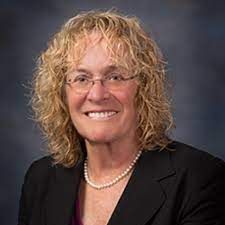Regionalization & Executive Session … Why the Secrets?
There hasn’t been any official study done, but if there were, it’s almost a sure thing that the Atlantic Highlands Mayor and Council holds more executive sessions without taking any action afterwards than pretty much any other governing body in Monmouth County.
It makes taxpayers wonder what exactly their reasons are for are keeping their thoughts, their ideas, and their reasoning on so many things in secret and not sharing them with the public.
Take regionalization, for instance. It is the subject that has drawn the most interest from residents of this town, Highlands and Sea Bright in ages. Sea Bright and Highlands elected officials share all their thoughts and reasons with the taxpayers.
Not so in Atlantic Highlands. They even tell the people they’re going into executive session to discuss, they’re going to come out and NOT take any action, and furthermore, according to the borough administrator, they can’t even talk about what they discussed, because, of course, it was done in executive session which means it must be kept secret from the public until they decide it’s okay for the public to know.
The borough’s attorney is sharp, pleasant, quick thinking and definitely an asset for this particular council. But she clearly says she is not up on all the information on regionalization. She knows, just as every taxpayer who is footing the $165 an hour bill for yet another attorney knows, the borough hired Matt Giacobbe, SPECIFICALLLY to handle all matters concerning regionalization.
Yet at last Thursday’s council meeting, a meeting at which the borough administrator had previously said he would see if Mr. Giacobbe could give the public an update on regionalization, the administrator said Mr. Giacobbe was not present because council decided they did not need him.
That might well be so.
But why would the borough attorney, who admits she isn’t up on everything on the subject, be the attorney council called into the executive session to give an opinion on regionalization and specifically NOT be the one the borough is paying as a SPECIAL attorney for all things regionalization?
The questions being considered for opinions during the executive session Thursday, the public was told, would include the non-specialist attorney’s recommendations on whether an update of the feasibility study Sea Bright and Highlands have agreed to pay for, is even necessary. And if it is, the discussion continues, does Atlantic Highlands, who kicked in for its share of the original study in the first place, want to help pay for the update? The borough attorney said they need to get information from the Department of Community Affairs as to whether the added information is really necessary. Does that take an executive session to discuss? Can’t the attorney, now that two of them are being paid to work on this, simply call the DCA and ask the question?
Might the reason for discussing it privately be so the taxpayers won’t know which council members, if not all, want to simply put all the load on the other two towns without any contributions of their own? Or might it be because some, or all, council members don’t really want Sea Bright in the mix at all but don’t want to let the taxpayers know about it?
The administrator said, and no council member or attorney disagreed, not taking any action at this meeting, and putting it off until next month, won’t cause any delay in any regionalization plans. Yet he also admitted, and again, without any denial from any council member, that they had no idea, because nobody told them, when a vote on Sea Bright’s inclusion could be held.
Well, if you don’t know the earliest date an election could be called by the already in existence new board of education, and if you apparently do not have enough interest to ask any further about an election or date for it, how do you know delaying your own action or lack thereof, doesn’t delay things?
In answering the public at Thursday’s meeting, residents could not even find out who among council asked for a legal discussion at all and if the borough would be involved regardless of whether they are obligated.
The answer to that question this time came from a councilwoman. It cannot be discussed publicly.




